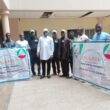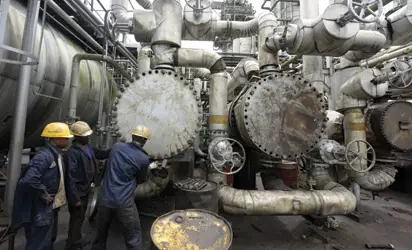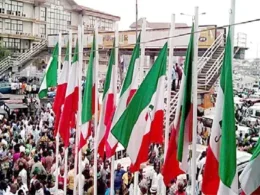“Liars ought to have good memories”. Algernon Sidney, 1622-1683 VANGUARD BOOK OF QUOTATIONS, VBQ p 127. Read online.
Right now, the nation, and indeed the entire world, is still confused regarding the situation with the two Port Harcourt refineries. Suddenly, in the last ten days of November, the Nigerian National Petroleum Company Limited, NNPCL, announced that the refinery was ready to start loading 200 tankers a day with petrol – without specifying which of the two refineries in PH will supply and without revealing if the petrol was processed from crude. It was a clever ploy designed to earn the NNPCL commendation.
Predictably, the media mercenaries, as well as the wilfully gullible, were hailing NNPCL for what one of them called “a remarkable feat which should silence critics”. Instead of silencing critics, what followed was more controversy. As usual with statements and promises made by NNPCL in the past, facts at our disposal prove conclusively that this was another rumour by the Directors of NNPCL. Two reports in the papers informed Nigerians as follows: “Port Harcourt refinery: Controversy surrounds NNPCL claim on operation.” Report, November 29, 2024. “P’Harcourt refinery halts operations, loading bay empty.” Report, November 30, 2024.
Additionally, there is dispute concerning the source of the petrol which the NNPCL advertised for supply at the rate of 200 trucks a day. One Mr. Timothy Mgbere, Secretary of the Alesa community stakeholders, made three allegations. One he contended that the 60,000 bpd capacity facility was not yet fully operational. Two, he alleged that only six trucks were loaded; and not 200. Three, Mr. Mgbere asserted that what the NNPCL released was old stock of fuel materials “that had been there for three years.” All these were said on television.
It would be difficult to disbelieve Mr. Mgbere, because the day after his interview was published, the refinery halted operations. Since then, it had been one dodgy story after another. Incidentally, the NNPCL, which invited trucks to lift fuel deliberately failed to fix the price per litre. Is that the way to run a company?
THE WAY WE WERE UNDER BABANGIDA
“Those who do not remember the past are condemned to repeat it.”
George Santayanna, 1863-1952, VBQ p 93.
This article was not written just to disparage the NNPCL and its managers. The uncertainties we face regarding fuel supply condemn them enough. More honourable men would have departed a long time ago. The main reason for writing is to remind all of us that we had the four refineries operating at 70 to 110 per cent at one time – 1991, 1992 and 1993– under President Babangida.
Before going into the details of how we were derailed by three Presidents – Obasanjo, Buhari and now Tinubu — let it be acknowledged that I know there are individuals, ordinarily logical and intelligent, who go into a frenzy each time Babangida is commended for a great achievement. For instance, most Nigerians are not aware that the Value Added Tax, VAT, now tearing the country apart, was created by IBB in 1993; and the nation was not at daggers drawn. Today, the nation is on war path with elected officials in charge. Dr Kalu Idika Kalu, former Minister of Finance, was our leader, when a small minority of us promoted VAT; while the majority (know-nothings) opposed. It is a fact that governments will collapse if VAT is removed from the revenue stream now. VAT alone demonstrates how far ahead of his time Babangida was.
IBB’s real genius, lacking in all his successors, was the recognition of the vital need for Nigeria, a major oil producing country to have built refinery capacity as to make the nation self-sufficient in fuel production as well as availability of by-products of refining which would provide steady supply of raw materials for other sectors – pharmaceuticals, paints, cosmetics, plastics etc. So, he ensured that the four refineries worked. Approximately this time last year, Engineer Alexander Ogedengbe, former Managing Director of the Kaduna and Port Harcourt refineries, was on television to warn Nigerians about the official lies we were being told. Many of us would recollect that the Minister of State for Petroleum Resources and the GMD, NNPCL were assuring Nigerians that the PH refinery would start supplying fuel by December 2023. The year ended without fuel from PH. Seven other deadlines have been missed since then.
Ogedengbe has turned out to be right about the failure of NNPCL to meet deadline repeatedly. However, he said something about how the four refineries were operating at high efficiency under Babangida which made those years the golden age for those of us who were constant travellers. I was on the road virtually all the time covering at least 25 out of the 30 states Babangida’s government created annually. The products were readily available and the price was reasonable and steady for years – making annual planning and budgeting easier for most companies. Right now, most manufacturing and marketing companies cannot plan for three months; forget a year or the three-year plan.
HOW DID BABANGIDA SUCCEED WHERE OTHERS FAILED?
“Fail to plan; and you plan to fail”. That has been one of the basic principles of managers in every field of endeavour; whether public, private, for profit or non-profit. Babangida, more than any other Head of State in Nigeria’s history, was a planner. And this was apparent in the way his government managed the oil and gas sectors. If IBB’s successors had followed his template for managing the nation’s oil and gas resources, Nigeria should by now have been supplying most of West and Central Africa with fuel. Dangote’s giant refinery might not even be necessary because it is vulnerable for reasons I choose not to disclose.
Four things Babangida did differently which resulted in superior performance by his government are the following: he did not keep the Ministry of Petroleum Resources; he appointed persons of absolute integrity as Ministers of Petroleum Resources; he gave them free hand to operate and he expanded refining capacity ahead of the need for supply. Let me explain.
Unlike Obasanjo, Buhari and Tinubu who hoarded the Ministry of Petroleum Resources, IBB appointed two Ministers – Professors Tam David West and Jubril Aminu during his eight years in office. Crude oil theft and prolonged scarcity were unheard of throughout. Although, some people objected to the removal of David West for receiving an undisclosed gift of wrist watch from an interested party, IBB made his point. Even the smallest taint of corruption in Nigeria’s most vital sector would not be tolerated. A stitch in time saves nine.
Expanding supply well ahead of demand was a master stroke of forward planning. Nigeria did not need the 150,000 bpd refinery established by IBB in Port Harcourt in 1989. But, given the trajectory of our population and economic growth, it was clear that Nigeria would sooner than later need every drop. So, the Federal Government ensured that Turn Around Maintenance, TAM was undertaken and completed as and when due.
$2 BILLION OIL BLOCK SOLD AT $5 MILLION
That story in THE NATION, July 31, 2008, was about a questionable sale of oil block when Obasanjo was President and Minister of Petroleum. It has not been refuted till today. So much for President and Minister of Petroleum!!
(Vanguard News)









